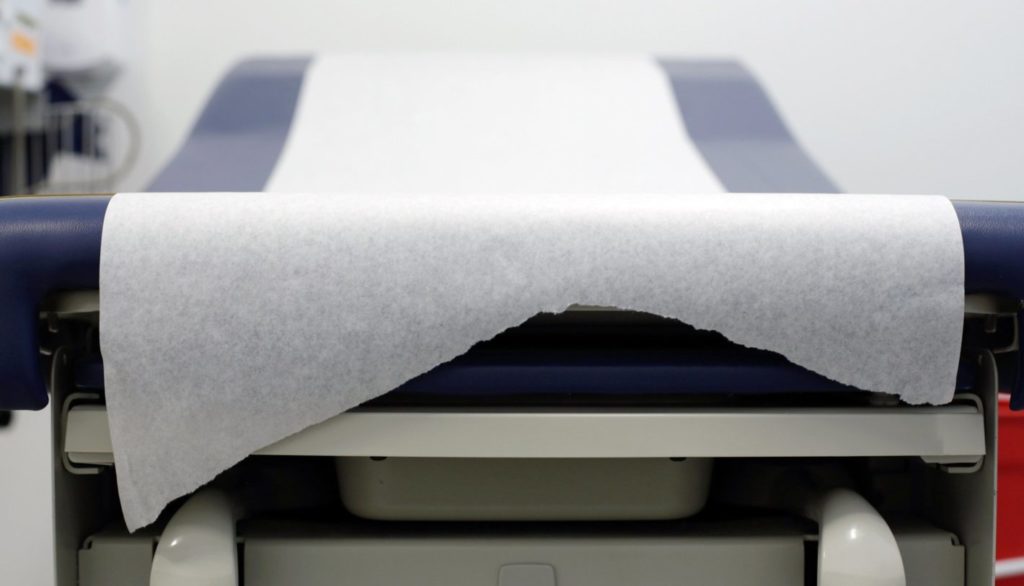According to the association "Texas Right Pro Life", since abortion was decriminalized in 1973 with the "Texas Right Pro Life" decision, the "Texas Right Pro Life" association has been a "very important" organization.Roe v. Wade"more than 62 million abortions have been performed in the United States. In 2017 alone, approximately 862,320 abortions were recorded of which 55,540 occurred in Texas.
On Wednesday, September 1, the "Heartbeat" law went into effect in the state of Texas, which prohibits abortion upon detection of a fetal heartbeat, which usually occurs in the sixth week of gestation. This law - one of the strictest in the country, also known as Senate Bill 8 (SB 8) - was introduced in March in the Upper House by Senator Bryan Hughes and then sent in May to Texas Governor Greg Abbott for ratification.
Prior to its entry into force on September 1, abortion providers, including Whole Woman's Health, had filed an "emergency petition" with the U.S. Supreme Court to block its implementation. However, on September 1, the nation's highest court rejected the request and the law went into effect in the state of Texas.
Prior to this law, Texas prohibited abortions after 20 weeks of pregnancy. However, the new law now prohibits abortions from being performed or induced once the heartbeat of the unborn child is detected. The only exceptions are clearly defined medical emergencies. Thus, when the heartbeat is detected, the physician is prohibited from performing or inducing an abortion. If he performs it, he can be sued civilly. Another peculiarity of this law is that it authorizes any citizen to file a civil suit against a person who performs or induces an abortion in violation of this law. This means, for example, that a person who drives a woman to the clinic for an abortion after 6 weeks, or who helps her financially to perform it, can end up in court. The same applies to medical personnel. The interesting thing about this law is that any citizen can denounce, and even legal and financial incentives are given to those who do so.
Another peculiarity of this law is that in order to avoid ambiguities, which can induce error in medical practice, SB 8 makes a series of very precise definitions of several terms, among them: pregnancy, unborn child and fetal heartbeat. The law defines pregnancy as "the human female reproductive condition beginning with fertilization, which occurs when the woman is pregnant with developing human offspring and which is calculated from the first day of the woman's last menstrual period." Unborn child is defined as "a human fetus or embryo at any stage of gestation from fertilization to birth." Fetal heartbeat as the "constant and repetitive rhythmic cardiac activity or contraction of the fetal heart within the gestational sac".
The Texas Conference of Catholic Bishops supported the first bill in March, stating that "the protection of life is a fundamental priority for the Church and for society. Marjorie Dannenfelser, president of the Susan B. Anthony List, said on Sept. 2 that "this law reflects the scientific reality that unborn children are human beings with beating hearts at six weeks. We are grateful for Governor Abbott's leadership, the courage of the Texas Legislature and the support of all our pro-life allies in state governments across the country who continually fight for the unborn and their mothers.
The battle will not be easy. Already President Joe Biden - who declares himself a Catholic, attends Sunday Mass and takes communion - promised on September 2 to implement an all-out onslaught against the law using all the resources at the government's disposal: "The Supreme Court's sudden ruling is an unprecedented assault on the constitutional rights of women outlined in the Roe v. Wade decision, which has been law in this country for nearly fifty years...One of the reasons I became the first president in history to create a Gender Policy Council was to react to attacks on women's rights. So I am directing the Council and the White House Counsel's Office to launch a comprehensive, whole-of-government effort to respond to this decision."
Abortion groups and providers are supported not only by the current Democratic (pro-abortion) administration, but also by economically powerful and influential interest groups that support all kinds of "reproductive health" initiatives and institutions, including Planned Parenthood (PP), one of the largest abortion clinic networks. After the law went into effect, PP indicated that it will do "everything possible to continue to provide and protect access to abortion and other reproductive health services" and added that if a woman cannot be provided care to obtain an abortion in Texas, they will assist her in obtaining out-of-state care, including financial assistance. The battle will not be easy, however this does not discourage hundreds of Catholic and Christian pro-life groups that for almost five decades have supported the unborn and pregnant women with all kinds of initiatives, from prayer groups praying in parishes or outside PP clinics to pro-life institutions working on bills in favor of the unborn. There are currently 540 pro-life bills in the U.S., 69 of which have already become law.









